|
This is the latest in a series of blogs by a partnering cohort teacher. -- By Dr. Miriam Roth Douglas, Director Community Education Program, and Associate Professor in Community Education at West Liberty University. In April 2018, Ms. Lou Karas (Director of the Center for Arts and Education), Dr. Cathy Monteroso (Interim Dean of the College of Education and Human Performance), and MaryLu Hutchins (Education Director of the Fluency Project) invited me to participate in the “Data and Technology Fluency Project.” I could have not been more excited to be part of this great project! (Note: it is called project, but it is not a project ;-) as everyone involved will stress to you!). For this Data and Technology Fluency Project Blog, I would like to focus on four major aspects that stuck out to me throughout my work with leaders and educators in the “Project,” as well as my personal experiences and applications of the newly acquired knowledge in the Community Education Program: Think, Move, Connect Framework Fluency (Technologically and otherwise) Top 10 Skills 2020 Practical Implications (from a professional development and student perspective) Think, Move, Connect Framework The College of Education and Human Performance has an overarching motto of “Think, Move, Connect” that is applicable and transferrable to all our programs in the college. I very much liked the idea of embedding The Fluency Project in the Think, Move, Connect Framework. But how would a framework like this really look like? How could it embrace all the different aspects of all our programs in one framework? And more specifically, in my case, how could this framework fit the CEP philosophy, mission, vision and goals of learning? One aspect in specific stuck out to me: Personalizing problem-based learning. The CEP program bases most of its work, learning, and objectives on problem-based learning (besides others, e.g. experiential learning, etc.). As it was described in one of the handouts: “Fluency: Think, Move, Connect will build on The Community Robotics, Education and Technology Empowerment (CREATE) lab’s experience working with teachers and schools in creating new engagement pathways for technology and data fluency.” But how could this goal of personalizing problem-based learning be put into practice, especially with regards to the Community Education Program? Thanks to Ms. Lou Karas, and her Center for Arts and Education this challenge of the engagement of pathways for technology and data fluency appeared to be a natural fit. The CEP and Ms. Lou Karas hold a close collaboration and partnership, as we are so lucky to have Ms. Lou Karas as one of our two main professors in the Bachelors,’ as well as the MAED programs in Community Education. Fluency (Technologically and otherwise) Fluency from my perspective has to major aspects: technology and “otherwise.” Firstly, we want to raise a technologically fluent generation. As described by the CREATE Lab Satellite Network, it is not enough to be a technologically literate person, but a technologically fluent individual can use technology to meet various needs. The CREATE Lab distinguishes: Technologically fluent educators, as teachers that “use technology to grow their practices apply it in context-relevant ways, use it to identify diverse student talents and facilitate multiple learning pathways.” Technologically fluent students that “apply technology to study, communicate about, and impact issues of direct concern.” Secondly, we want to raise and educate a generation that is fluent “otherwise” (e.g. in equity, compassion, authenticity, and agency). From my point of view, this goals is only reached by applying the views that Michael Soskil’s is describing in his chapter “A Time of Unprecedented Change” in the collection of essays, Teaching in the Fourth Industrial Revolution, of combining the concepts of humanity and empathy with technological innovation for future prosperity (p. 20). Top 10 Skills 2020 Right with this combination of technology and other skills, the top 10 skills in 2020 come to mind (World Economic Forum):
This list of skills and their combination with technology provide the perfect mixture of concepts that our future student generation needs, to grow into successful individuals. One cannot, or should not, exist without the other. In the CEP we are trying to embed this in our Think, Move, Connect framework through the help of the Fluency Project. Practical Implications (Professional Development, Student Perspectives, and International Work) I believe practical implications of the latter described goal can be seen in our CEP by looking at three areas: Professional Development, Students Perspectives, and International Work. In this section, images will provide an insight into some of the work that is taking place. Professional Development: Attendance of workshops organized by Ms. Lou Karas “Unconference”: Play for change (October 30, 2018) Student Projects: Accidental Art – Exploration with polaroid cameras Labyrinth Design for Play Nooks on WLU Campus Children’s Museum of Wheeling – Exhibit Design Google Drive Links to a few student examples: The Glow Room iMotion Workshop International Work: During my Winter School Trip to Julius Maximilian University, Germany in February 2019, I was able to take a Theta Camera from The Center for Arts and Education to experiment with it. Thanks to Ms. Lou Karas, Dr. Cathy Monteroso, Dr. MaryLu Hutchins, and the whole team involved in the Fluency Project. You provide amazing opportunities that are very much appreciated!
References: Doucet, A., Evers, J., Guerra, E., Lopez, N., Soskil, M., & Timmers, K. (2018). Teaching in the Fourth Industrial Revolution: Standing at the Precipice. New York, NY: Routledge. 2019 January 30. World Economic Forum: Top 10 skills and workforce strategies in 2020. Human Resources. Retrieved June 13, 2019 from https://www.humanresourcesonline.net/world-economic-forum-on-the-top-10-skills-and-workforce-strategies-in-2020/ A Bachelor of Arts (B.A.) in Community Education Program prepares future leaders in all aspects of community education through the working and teaching in non-formal and informal learning environments, and/or non-profit organizations. Furthermore a Master of Arts in Education (M.A.Ed.) in Community Education: Research and Leadership, prepares individuals as professional educators, researchers, and leaders in non-formal environments
0 Comments
This is the latest in a series of blogs by a partnering cohort teacher.
-- By Lindsey Lamm, Northern Allegheny School District In my new role in my new district as an Instructional Technology Integrator, I am tasked with helping teachers purposefully integrate technology into their lessons. This role allows me to meet with teachers, help them learn new things, and, in most cases, co-teach in their classrooms while implementing the technology. I also run pieces of professional development at both the building and district level involving technology initiatives and trends. In this role, building relationships and trust with teachers is paramount to the success of the implementation on both the teacher end and my end. However, a phrase consistently comes to my mind when presenting new technology. The phrase is, “You don’t know what you don’t know.” When I was a classroom teacher, I was so bogged down with everything needed to make the day-to-day operations in the classroom run smoothly that the only time I was learning about new technology was through professional development outside of the classroom. Had I been unable to attend those conferences, I’m not sure I would have learned anything about the technology that is out there. “You don’t know what you don’t know. “ I view part of my new job as being that liaison between the classroom teacher and the new technology. If I can learn how to use the technology and bring that knowledge to classroom teachers and team up with them to co-teach, we will be successful. I’m very lucky to be in the position I currently possess. I know this. When I am with mixed company and I tell them what I do, the job description is usually met with wishes that other schools had the same position, or that schools had more of the position to help reach more teachers. Just recently, I paired with a second grade teacher to take 360 pictures of their field trip and then allow students to annotate them with what they learned on the trip to create a Google Expedition about a week later. When I shared this project with some colleagues, it was met with enthusiasm, ideas for integration across other disciplines, ideas for incorporating this technology to help some of our students with anxiety needs, and the phrase, “I didn’t even know you could do that.” I think the most important thing I learned this school year is the value of sharing the work we do in the classroom AT THE DISTRICT LEVEL. We are not helping ourselves if we only share what happens at the elementary school in the elementary world, middle school in the middle school world, and high school in the high school world. I think it’s important for elementary teachers to see what is happening at the high school level to help guide expectations. I think it is just as important for high school teachers to see what elementary students are doing to help with expectations. I think it’s important to go into these discussions with the expectation of learning what others are doing, not integrating every piece of technology into the classroom. OSMO products, for instance, are not a great fit for the middle/high school world. However, the coding and problem solving skills learned by kindergarten and first graders certainly can help guide block coding expectations in Scratch or even Raspberry Pie and Python. The idea of sharing out what we do in our classrooms helps alleviate the problem of not knowing what we don’t know. Sharing sessions allow for teachers to be invigorated when they do see something that could work. I would argue, after my time this year, that sharing sessions are as important to the work of a teacher as workshops learning how a piece of technology or new product works. You’ll always not know what you don’t know. Being exposed to the unknown, though, allows for familiarity in every sense. This is the latest in a series of blogs by a partnering cohort teacher.
-- By Sue Mellon, Allegheny Valley School District As an educator, I found this inquiry-based work extremely rewarding. I was a witness to many “ah ha” moments and I received an email from a student over the weekend before the deliverables were brought to school that stated “Mrs. Mellon, I am so excited. I can hardly wait for you to see my project.” Considering that I basically said “you have a research project to do, but I am unsure of your topic,” I thought that the students and their parents handled things very positively. Ms. Bellavance and I fielded many parent questions/calls/emails in the days leading up to the deliverable due date. In one of my conversations with a parent, I explained that the goal was to support their child through a thinking based process. I was overjoyed when the parent said that they can definitely see that Ms. Bellavance and I accomplished this goal. The deliverable was a tri-board which is an adaptation from the National History Day Competition. There were requirements to have three primary sources. Students were to explain the sources and explain the relationship between the source and their question. Students were also to write about an internet search or resource that was not helpful to their work. Even after the deliverables were brought to school, we stayed focused on process. If a student was missing something from the project checklist, either Ms. Bellavance or I helped them with completion. One of the most difficult parts of doing open ended work is having no idea where the process is going or going into areas that I know little about. One young man’s parents immigrated from Turkmenistan and he was fascinated by his great great grandfather’s cunning and bravery in battles. My knowledge of world history is weak and I have no experience with the history of Turkmenistan. In the range of years for his great great grandfather’s time, there was much upset. I was definitely coming across accounts of invasions/revolts/uprisings with bias for one side or another. I felt that I was tiptoeing around blindly. I was blinded by my own ethnocentric education. I managed by finding the most factual based accounts of fighting and sending them home with hand written notes stating “I am sorry that I have limited knowledge of the history of Turkmenistan. Does this article that I found put us in the correct time for his great great grandfather’s bravery?” As our process continued, I learned that this young man’s great great grandfather witnessed the murder of both his parents at the tender age of eleven. This ten year old’s great great grandfather’s cunning was managed through faking his own death three times. This is a story with great heart and I am humbled to know it. I rejoice in the knowledge that all the students showed great heart in their work. Here is a Google file with pictures of their projects. This is the latest in a series of blogs by a partnering cohort teacher.
-- By Lindsey Lamm, North Allegheny School District In my three years of participating in the CMU Fluency Project as a member of the original cohort, many of our discussions always end up back at one of the books about which we have spoken since June of 2016. I would even venture to label Dear Data by Giorgia Lupi and Stefanie Posavec as a mentor text for The Fluency Project. If you are unfamiliar, these two ladies wrote a book detailing postcards they sent back and forth to each other containing seemingly mundane data they collected each week. Some examples of data titles each week include A Week of Negative Thoughts, A Week of a Workspace, and A Week of New Things. These ladies represented their data in various forms, and they sent these postcards back and forth on the same topic each week for one year. This book fascinates me because it truly shows just how immersed we are in data as a society. In many cases, we use data without even realizing it. I love how these ladies show just how easy it is to compare data on just about anything. I am hopeful about the implementation of two initiatives, focusing on data analyzing and data discussions, in the 2019-2020 school year. One initiative is for the students in the classroom, while a second initiative is focused on data from staff that students can use to analyze. My hope is to showcase the project shared by West Liberty University with groups of teachers to hopefully have Data Portraits in their classrooms as a getting to know you activity in September. If we are able to teach the kids that data is more than numbers on charts and graphs all the time, we are well on our way to eventually having the more meaningful conversations about what data is being collected, by whom is the data being collected, how willingly are you as a consumer giving the data to these groups, and how comfortable are you with your data being given away (at times) by companies? Those conversations currently are not written into the resources for the math curriculum at the elementary school, that’s for sure. Students would take the data portrait display and find similarities, differences, new questions, and even figure out which data portrait matches which classmate. This could be done throughout the year, with frequent revisiting to the graphic. My second hope is to have a teacher data wall on one of our new bulletin boards, as our school is currently being renovated. I would love to do a Dear Data Portrait activity with teachers, anonymously put the final projects up on the bulletin board, and then use the morning announcements to ask questions about the data addressed to the students. Students would come to the board, analyze the data, place their answer into an answer box, and one kid would be chosen each week as our Data Analyzer for the building. In both of these projects, students would be analyzing data in forms that vary from just graphs and tables. Our kids would have a deeper understanding of data analysis, and, eventually, we would be having deeper conversations. I’m excited to bring this to the table in August with my principals and hopefully implement for this school year. This is the latest in a series of blogs by a partnering cohort teacher.
-- By Sue Mellon, Allegheny Valley School District My goal was to have students appreciate the nonlinear nature of true inquiry. Engineers have their iterations and detectives know that every tip will not pan out. Journalists realize that a once promising lead can result in wasting time and doctors lament that the first prescribed medication may not help the patient. This blog focuses on connecting the dots between wonder and topic selection by relaying the journey of one boy whose question was “My grandfather is very smart. I wonder why he did not go to college.” You may be thinking that this student should just ask his grandfather this question because his grandfather is still alive. Well, I know from experience that this approach is not always helpful and can even stymie communication. We started the work by brainstorming the reasons why someone might not go to college and decided that financial reasons were a good place to start. His grandfather grew up in the Scranton area and I told my student to see if he could find a secondary resource that accounted for the economic standing of Scranton around the time that his grandfather graduated from high school. This boy is very bright and soon had a graph that showed that population as well as economic activity declined about the time that his grandfather was finishing high school. We hypothesized that perhaps a large business closed. Using the Google newspaper archives for Scranton area newspapers, we wasted a great deal of time looking at headlines hoping to find an article about an important business shutting down. One of the reasons that we were in the newspaper archives was that the students’ research task was to find three primary sources that gives some insight into the question that they had after reviewing their family vignettes. The twisting and turning had begun and this student needed a new direction. Secondary sources can help when a next step is unclear and this is where the answer was found. In reading historical summaries for the Scranton area, we learned about the Knox Mining Disaster. Secondary sources documented that this disaster negatively and significantly impacted the Scranton region’s economy for at least two decades if not longer. Greed and corruption were at the heart of this catastrophic event that took lives. There was a hole in the Susquehanna River for which railroad cars were being used as “plugs.” A topic was determined and he decided that the literary theme that matched his research was “Overcoming Adversity” with a sub-theme of “My Grandfather: A Tenacious Man.” Many of the students had similar experiences and I viewed my role as providing academic support and encouragement through a murky process. To do this, I took groups of four or five students to our computer lab for four 30 minute sessions which took about four weeks to cycle all the students through. Students were encouraged to conduct some research at home and many did. This was not a quick unit and Ms. Bellavance’s flexibility and positive attitude were so important to the culmination of this project. By Sue Mellon, Fluency Cohort 1, Gifted Support Teacher in the Allegheny Valley SD As many of you know, Fluency is a processed based experience that morphs through ever expanding encounters. As a Cohort 1 Fluency member, the promise of inquiry-based learning for students has a forever place in my teacher’s heart. Although no longer listed on the website as a core value, inquiry-based actions are evident in the work of many Fluency teachers. Throughout this past school year (2018-19), I had the privilege to work with 5th grade English Language Arts teacher, Kristin Bellavance, and 18 of her students. I would have loved to work with all of her students, but this was my first attempt at personalized inquiry-based projects and time is tight. I had the goal to honor each child’s thinking style and for each child to land on a topic that sprang forth from their own sense of wonder. This personalized approach to inquiry-based work can be traced to my Cohort 1 time in Detroit with Allied Media and the workshops based on their RIDA framework which emphasized the need for students’ connecting to their learning. This 5th grade project was called “Family History Mystery” and the students knew that “family” was defined as anyone that you care about or anyone who cares about you. The project was prefaced with a great deal of work valuing and using primary sources which moved into the students creating primary sources by scribing some vignettes that they heard from their family. These student scribed stories were used with the Project Zero (Harvard University) Thinking Routine - Question Starts. As with all Project Zero Thinking Routines, colored Post-it notes were everywhere in the room and on the students’ stories. The Post-it Note work lead to one favorite question from their family mini-stories. At this point, the students did not know that they would be asked to meet Pennsylvania Common Core standard CC.1.4.5.V by conducting research as I did not want the question to be influenced by what might be “easy” to research. The questions were extremely varied and were the springboard for literary theme based topic selection. Here are a couple examples-- One young boy was fascinated that his uncle had earned a spot in “tryouts” for the Pittsburgh Pirates, but then was drafted into the Vietnam War before getting any feedback on his performance. This young man’s uncle returned from the war injured. This boy’s research topic settled with “the draft” and I have a fine memory of his “ah ha” moment when he exclaimed in front of the computer screen “Oh I get it! The draft is like the lottery.” His literary theme - “Life is Hard.” A very athletic girl wondered if her toughness in sporting connected to past generations. After reading a great deal about raising goats in the early 1900s because a great grandmother had done so, her research and family questioning went back in time some more and she learned that she had a family member who used his farm as part of the underground railroad. Her theme - “Heroism and Courage.” This is the latest in a series of blogs by a partnering cohort teacher.
-- By Brett Slezak, Allegheny Valley School District In the past year and half, having transitioned from teacher to a district level administrator I have been working through how the ideals of the Fluency Project can scale throughout an institution. When I was a Health and Physical education teacher, I felt like I had a pretty clear grasp of what student voice, inquiry, and advocacy meant to me and my students. It was easier in the classroom to be the master of my own domain. Regardless of any of the systematic outside influences being placed on me by the state or school system, it was ultimately me as the teacher who had all of the decision making ability to design, hone and implement experiences for my students in those 45 minute time blocks. But looking at the system from a new administrative lens from a very different vantage point, I realized that my task with Fluency was still about building capacity, but just in a much larger, complex, scale. Being in the central office, just from sheer geography, can make it extremely difficult to stay connected to the students and staff that you are serving. I struggled and still do struggle with the feeling this creates for me, because Fluency to an large extent is about building relationships and humanizing the shared experience of education. However, out of that struggle I’ve thought a lot about that phrase, “the shared experience of education,” and have grown to realize that my first step in building capacity around Fluency in our district is to help others start seeing our successes and struggles as a shared experience, not one of isolation. Having at times become extremely tunnel-visioned on projects this year, I know how easy it is to think that your goals and experiences are solely yours, and impact only you. And when I take a moment to notice and wonder about the people around me, it is clear to see that other administrators, staff and students are also having experiences that they believe are solely theirs. However, in reality our experiences are unbelievable interdependent and deeply woven together. It is easy to miss this simple fact. Guilty of it myself, it is easy to forget what it feels like to be in the classroom everyday as a teacher, and even easier to forget what it is like to be a student living out a day in our school system. As a teacher, it is easy to forget what it is like to be a student sitting in class, in a hard desk for 6 hours a day. Being a student, it may be true that you’ve never spent the time to think about what it might be like to function as a teacher or administrator on a daily basis. Lowering barriers to understanding each other’s experiences though is essential to humanizing education. With just these three different roles in mind, it is easy to see how interconnected just the experience of one lesson plan might be. For example, when a teacher writes a lesson plan there is a good possibility that they have competing voices guiding them through the process. They might be trying to write a lesson that best fits the needs of all the different learners, while also writing a lesson that will get them a good evaluation, while also writing a lesson that helps them stay true to who they are as a learner themselves. None of which normally align in a neatly wrapped package of shared goals. This lesson then could be received in a hundred thousand different ways with students, which might lead to a teacher of the year award or disciplinary referral to the office. Then from the administrative perspective, in those extreme scenarios that is the difference between getting to celebrate awesomeness or dealing directly with an unpleasant behavioral exchange with a student. Additionally, that administrator is thinking about how they might support or change the instruction that is happening in that room for the better. From the student’s vantage, they might see a lesson that ignites their passion for something they didn’t know exists, or they might feel like their teacher is giving them busy work and doesn’t care about them learning. They might then be thinking about what they can do to avoid that class tomorrow or how excited they may be to come back and learn more. All of this could happen, with a million and one other variations of reactions in between. Obviously, learning, education and school is a highly complex experience with complex forces pushing and pulling in a number of directions. I truly believe that most administrators, teachers and students (regardless of the reality of the outcomes) want learning to be engaging, meaningful and what is best for student. However, I would also venture a guess that most students feel like they are on “team student,” teachers on “team teacher” and administrators on “team administrators” without ever thinking about the roles that others play in the system. They most likely are focused on the outcomes they want with little noticing of the other’s experiences or wants. It is as if we are all playing on the same team but feel the need to always steal the ball from our own teammates. And most likely it is our system that has taught us all to think that way. It has taught us to see learning as a competition to better ourselves and not a shared experience with shared ownership. This idea of the shared experience of education, I have found is where I am focusing my leadership energy in this moment. I’ve realized that the first step in creating a culture of Fluency in our district is to do my best to help bring people from all levels of the system to an understanding that our actions and decisions are so closely interconnected. It is important to understand that there is value in listening to each other’s perspectives and having our own perspective heard. When we do this, we start to understand that we are all part of a larger system that functions both independently of us and co-dependently with us. Much like how I view technology through Fluency as a force that can bring us together or drive us apart, this shared experience is a force that we can choose to harness in the same way. We can forget about the other people outside of us and let learning slowly atrophy, or we can remember that we all share in this experience together and by acknowledging that schools can be a bit more humanizing for everyone.
This is the latest in a series of blogs by a partnering cohort teacher.
-- By Jennifer Lanas Hello, #FluencyFriends-- I get the biggest kick out of this time of year. It’s exhilarating seeing nature in full-bloom. From the nostalgic vantage point of my eleven-year-old self, I’m living in a kaleidoscopic prism of wonder. The world is alive; bursting with infinite possibilities! Yet, for any possibility to develop, it must be supported. How might we increase the probability that our endeavors develop into an actionable reality? I firmly believe that it begins with being very intentional about making the space and time to think deeply, explore our curiosities, and practice compassion. From my perspective, it begins within the context of our relationships. It is incumbent upon us to show loving kindness towards ourselves and others, unceasingly. We have an innate capacity to learn by following our curiosity and discovering things we are passionate about. Perhaps we start by giving ourselves the permission to take risks and treat ourselves with compassion as we attempt to learn new concepts—to fidget, get frustrated, fail...a little and a lot, forgive ourselves and others, seek and find inspiration, and get back at it—it’s a process. Not necessarily in that order. Life is a messy, beautiful process. Let’s allow ourselves to build relationships upon that foundation. When we come together as a cohort, we reflect upon the meaning behind this messy and beautiful process in the most spectacular ways. Tinkering with problems, unearthing thought-provoking questions, arriving at insights, and authoring game plans for taking action… these are all purposeful outcomes moving us forward. Success stories rarely come delivered in such a tidy package outside of the laboratory or a contrived sitcom. My partner and I will have filled out three change of address forms between last August and this June. In the past ten months, I have become quite adept at navigating new cities, traversing public transit networks, and authoring creative reasons to put-off unpacking those last few boxes that are patiently waiting to go on another adventure—another reason to practice compassion. Life is messy and beautiful and we must be open to possibilities that pull us in unexpected directions: new jobs, life events, the pursuit of dreams… and as long as you are dreaming, you might as well dream big! Dig deep into your own experiences and you will know exactly what I am talking about. I’m glad my husband is such a supportive partner-in-crime and co-conspirator. Especially in this, my first year working outside of the classroom. I have logged miles criss-crossing the country and wearing a variety of hats, assuming interesting roles. Some of you met me at workshops in Ohio or West Virginia, or maybe you have known me for years as an educator and ally/advocate for youth. Just consider me a #FluencyFriend plugged into Pittsburgh’s inclusive innovation ecosystem. It is a comfort and a blessing that Fernando’s compassion and encouragement has helped me to thrive in all of those roles, as he has been my champion and thinking partner in this messy, beautiful stage of the journey that I am on. What is Fluency? This is the question that three cohorts of teachers in Pennsylvania, West Virginia, and Ohio have pondered for three years. As #TheFluencyProject enters its fourth year, expanding into Kentucky there are three key takeaways:
Let’s call it “real life for real people”. I’ll mentor you and you’ll mentor me.The future is being written—and we have the chance to shape how it sounds. I am glad that you are on my team. This opportunity of a lifetime is made possible because we are compassionate to ourselves and our community. And it is in trust and faith that we promise to allow ourselves the fullness of space and time to develop meaningful encounters with our own thinking and learning. Because While Our Hands Are Busy, Our Minds Are Free To Wander. -Jennifer Lanas Fluency Project P.S. My fascination on the subject of practicing compassion and developing learning agility comes from a few places, notably:
This is the latest in a series of blogs by a partnering cohort teacher.
-- By T-L Rogers, Bridgeport School District While winding down for the end of the school year and tying up loose ends, I found myself heavily preoccupied with thoughts and reflection of the last year. I feel like I have learned so much by experiencing The Fluency Project and yet barely scratched the surface. During the last several days we spent together this month, I really had a breakthrough; I humored some really great initial inklings that eventually led to more solidified ideas, followed by some actual artifacts. One such artifact is a survey I distributed to the staff at Bridgeport. This survey served many purposes: the completion of a leadership activity for my year 4 of Ohio’s Resident Educator program, a culmination of previous inspiration from our district’s leadership class led by Mr. Shutler that formally concluded in the winter but remained a joint commitment by staff throughout the end of the school year, and a unique opportunity to collect narrative data from my colleagues. My survey consisted of nine questions in three different sections. The first three questions asked respondents to rate their levels of expertise in various skill areas ranging from classroom management and various forms of assessment to the application of technology and data. My goal is to analyze the results from this section and match people in need of assistance with those who are confident in that skill area for peer-mentoring. This information will also help our District Leadership Team determine needs for future professional development offerings. In the next section, four questions asked respondents to reflect on their thoughts regarding the four core values of The Fluency Project (compassion – equity – authenticity – agency) and how they promote each within their classrooms or on our campus. I included a rough definition of each value as it pertains to the field of education for reference. By analyzing and understanding my colleagues’ understanding of the work we are doing with The Fluency Project, I am hoping to brainstorm the best ways I can support those members who do not get to experience all that we do in this unique setting, and ultimately serve as an influential agent of positive change. The final section asked respondents to rate their likelihood of participation in future activities including another leadership class, a book study, and informal collaboration sessions amongst staff. There was also a blank provided for respondents to explain what they envision for each activity of interest. I do not yet know my full goal for this section of data. Part of me would love to be a leader in one of these activities, but perhaps a bigger part of me is apprehensive about taking on such a bewildering task and uncertain of my claim to such a role. So far I have only received twelve completed surveys, but that is twelve more pieces of the puzzle and insights into my colleagues’ minds and educational beliefs and practices than I had before. The lack of response to date is almost definitely due to the fact that I did not finish and send out the survey until our last day of school, but I am hopeful more people will respond in the future. If the outcome looks bleak by the end of the summer, I plan to email it once again in August as we return to school well-rested and inspired to begin anew. I was pleasantly surprised to learn that half of the respondents were staff members who are not involved in The Fluency Project, so I already have the stage set for some comparison and contrast. What I have learned so far is that even in a group as small as twelve, we have diverse ability levels and people who can help others learn and grow in areas where some may struggle. I also discovered that many respondents used similar “buzz words” pertaining to the core values, but provided some differences in application in the classroom. Finally, I was pleased to see that all twelve respondents were very likely to participate in at least one of the three proposed activities for the 2019-2020 school year if they were offered. In addition to the staff survey, I also created a Microsoft Form that will serve as a weekly check-in for students next school year. The goal of this five question survey will be to find out where we are meeting our students when they return on Monday mornings after a weekend in an environment we cannot control, that may impact how they fare in the classroom for the week. The first four questions are open-ended: “I am happy or excited about…” “My brain may be distracted by…” “I can be very helpful with…” and “I may need extra support with…”. The final question has a drop-down box for students to select from a list of teachers if they would like to request a mid-week check-in to see how they are doing. I am hoping this form will help establish trust by communicating to students our compassion and concern for what’s going on in their lives and reassuring them that we are there to support them. It will also provide my teaching team with important data to guide our interactions with our students for the week. I am excited and grateful for the time we are granted in the summer so I can plan new things I would like to try with my students next year. I am also looking forward to future opportunities to connect, collaborate, and share with you all. This is the latest in a series of blogs by a partnering cohort teacher - this time with a special guest! -- By: Mike Zolnierczyk & Brett Slezak, Allegheny Valley School District This year at Allegheny Valley School District, Mike Zolnierczyk (a senior student) and Brett Slezak (a central technology administrator) embarked on a brand new journey of creating a Educational Technology Internship, in which the two worked together to create more meaningful learning experience through hands-on work. At the end of the semester, as a final project both of them sat down and co-created questions they thought would be interesting to know about each other’s thoughts on the program. Inspired by the Dear Data project, they answered the same exact questions separately to be able to compare each others honest responses. Here are those responses: Can you describe your experience in participating in the AVSD Ed Tech Internship program?
How has inquiry or your own passions guided what you did this semester?
How was that experience different than what you were expecting or what people have expected of you before?
Do you feel like you understood the other person’s expectations? How do you feel like you met those expectations?
How have you grown from the experience?
|
Archives
October 2020
Categories |

This work is licensed under a Creative Commons Attribution-NonCommercial-ShareAlike 4.0 International License.
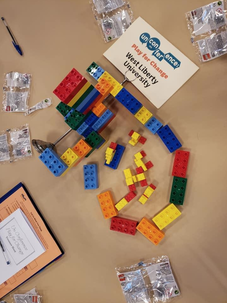
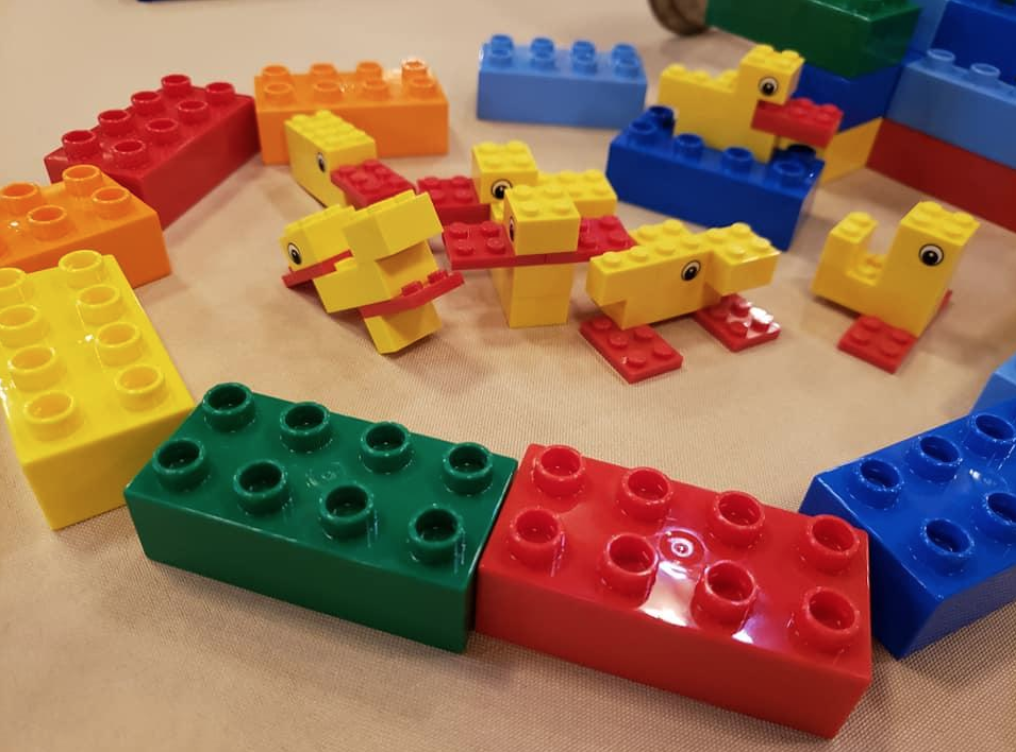
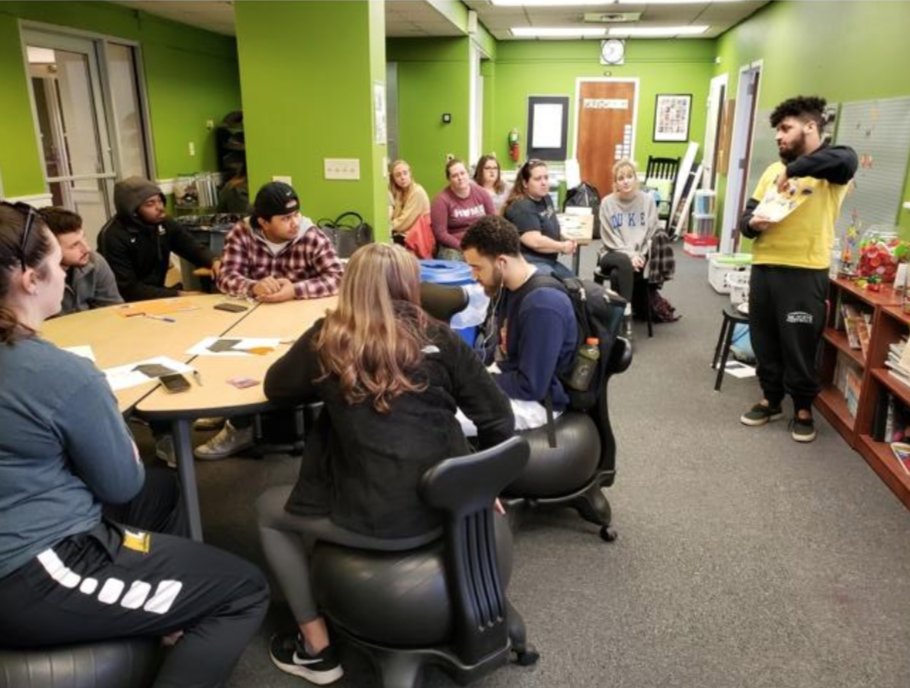
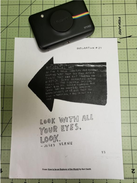
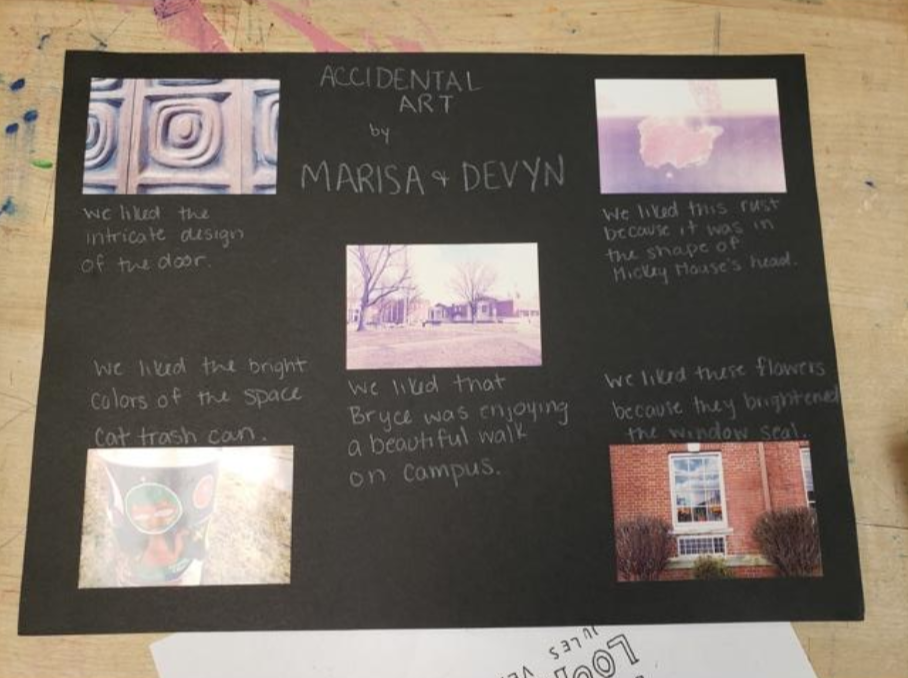
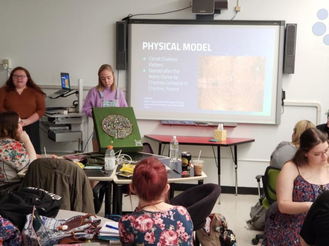
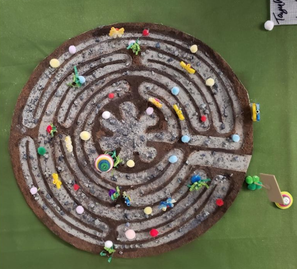
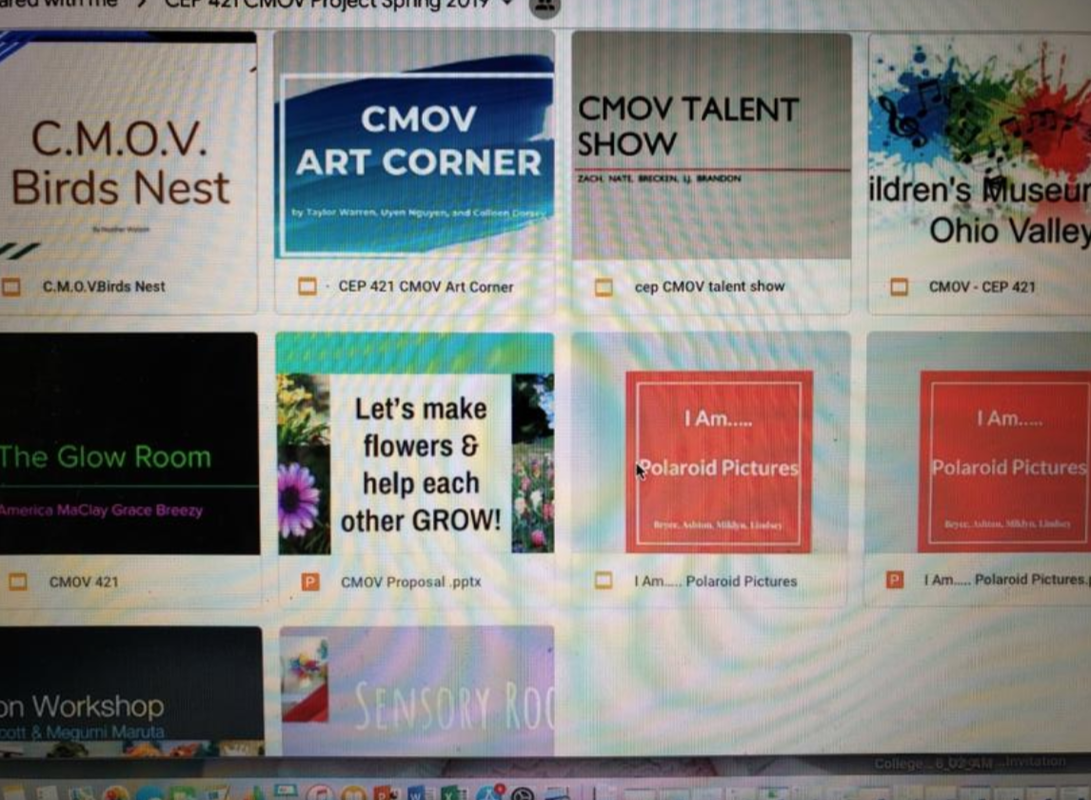
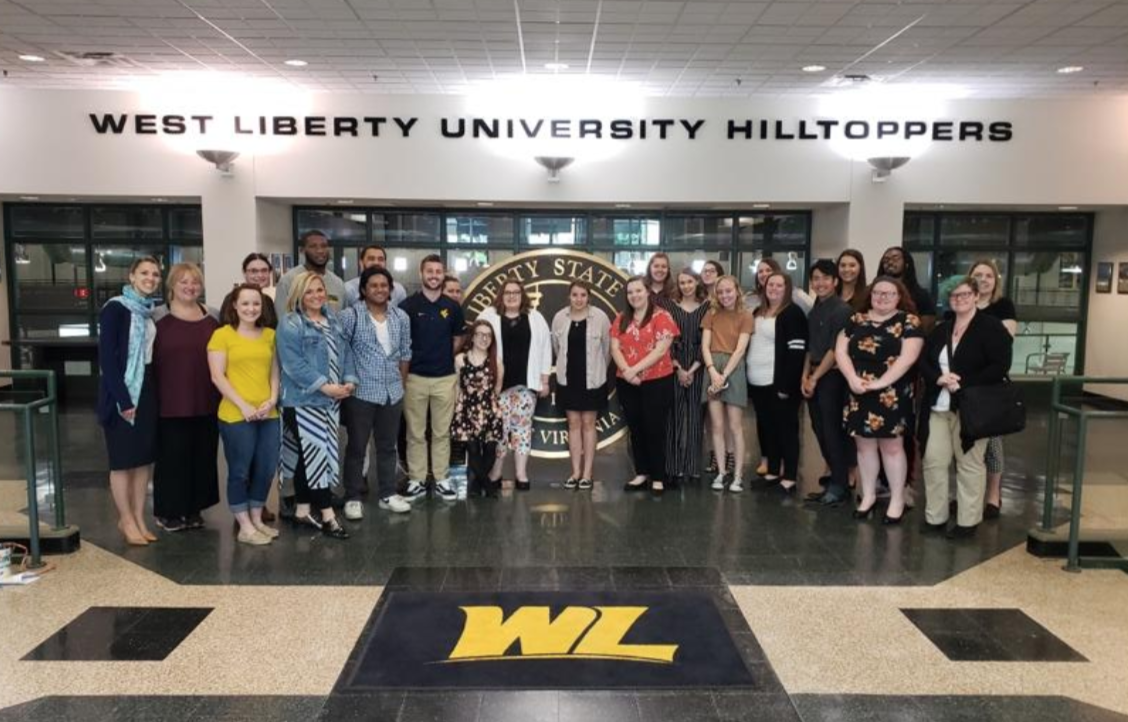
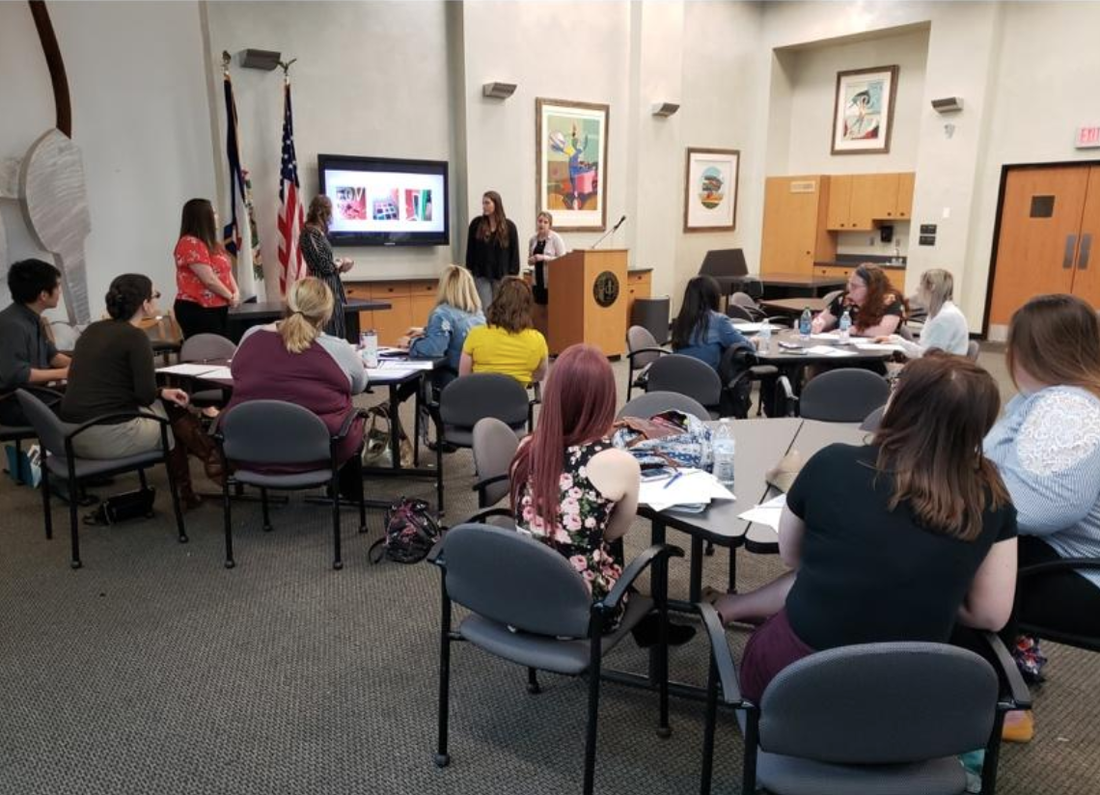
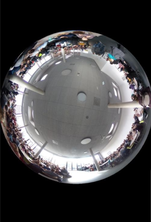
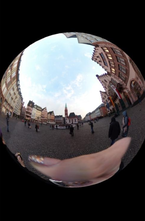
 RSS Feed
RSS Feed